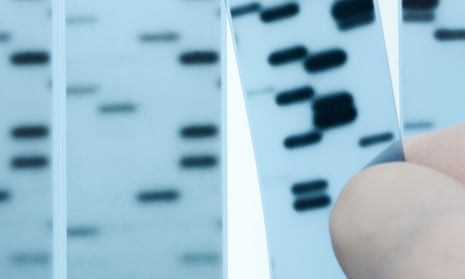The government will damage British justice if it inflicts further cuts on forensic science, the official regulator has said.
Dr Gillian Tully warned in her annual report that financial pressures were compromising quality, including potentially in serious criminal cases involving murder and sexual assault.
Techniques such as DNA analysis and hi-tech examination of samples underpin the criminal justice system and are vital to proving guilt and innocence in the courts.
The government abolished the Forensic Science Service in 2012, which was the main provider to the police, and the system has been beset by problems.
Numerous forensic providers have struggled to agree standards of dealing with samples and how they are reported to courts, especially to juries.
Tully told the Guardian she wanted the power to ban substandard providers, which the regulator currently lacks.
She also warned the government that the budget for forensic science could not be reduced further.
She said: “Spending on forensic science has gone down. We are approaching the stage where we are at the very limit of these cuts, and it cannot be cut further as quality will be compromised.”
Tully said the cuts had been met through savings and by fewer samples being submitted for examination.
She warned further cuts would increase the risk of miscarriages of justice and cases where victims of serious crime failed to get justice. “We’ll end up with more failures,” Tully said.
Tully revealed that she would be examining an alleged police error in the case of the convicted serial killer Stephen Port, who was jailed last year for murdering four men.
The regulator will investigate why the Metropolitan police did not carry out forensic tests on Port’s third victim when told to do so by a pathologist.
Port tried to make the man’s death look like suicide, and failings in the case are under investigation by the police watchdog.
Tully said there was too little legal aid being provided for defendants to challenge the forensic evidence being used against them in criminal cases.
In her report, the regulator said: “Funding for forensic science across the board and, particularly perhaps, for defence provision via legal aid, must be at a level that enables the standards to be met.
“Otherwise we will face the costs, both in criminal justice terms and financially, of quality failures and loss of confidence in forensic science.”
Tully said forensic services were generally of high quality and the public could by and large have confidence in them. But she said there were areas of concern.
In a rape case a sample from a victim became contaminated and could not be used. The incident raised concerns about other cases.
In her report the regulator said: “DNA recovered from one complainant examined at a sexual assault referral centre (Sarc) [was] detected on the intimate swabs from another complainant examined in the same facility, in circumstances where the DNA could not have been present on the second complainant.”
“A number of concerning contamination-related issues in both Sarcs and police custody were raised to the regulator, including the same medical practitioner being asked to examine multiple suspects within a case, or even both the victim and the suspect within the same case.”
There were concerns also about standards in the increasingly important area of digital forensics – extracting evidence from phones and electronic devices. This is crucial in cases where social media is involved and in instances of digital hate crimes and blackmail.
Tully said: “Police forces must not treat quality standards for forensic science as an optional extra – and neither must others delivering forensic science in the criminal justice system.”
Debbie Simpson, the National Police Chiefs Council lead for forensic science, said: “The police service is committed to achieving accreditation and improving standards of forensic science.
“This latest report of the forensic regulator has highlighted key priority areas for us to continue to enhance our response and prevent quality failures.”
